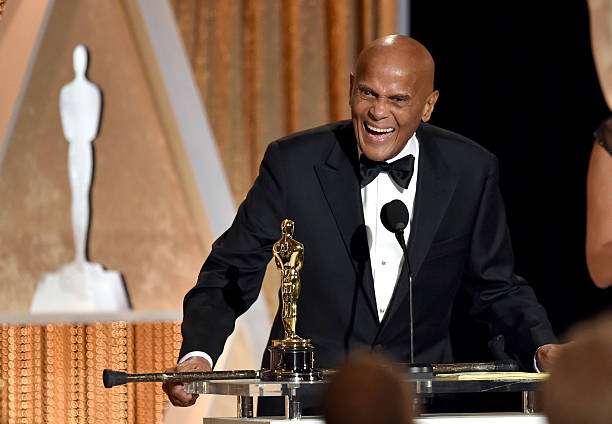You are here: Home / BM / Black Hollywood: The Greatness and Grace of Harry Belafonte.
Like
Like
Love
Haha
Wow
Sad
Angry
1
(ThyBlackMan.com) This week the world lost one of its truly great freedom fighters in the person of Harry Belafonte. For roughly seven decades, Mr. Belafonte fought for human dignity with his fame, his influence – and his checkbook. As the Civil Rights Movement collapsed into cardiac arrest, Belafonte was at its bedside with a defibrillator, trying to shock it back to life. Of course, activism isn’t what initially made him a household name.
Just as Dick Gregory made audiences laugh years before he made them think, Belafonte made audiences move their legs rhythmically before he made them move their bodies politically. He was born in New York, lived primarily in New York, and ultimately died in New York. But, ultimately, Belafonte was a native of Jamaica (the island, not the neighborhood in Queens). He was a true son of the West Indies. That sensibility was evident in everything from Belafonte’s crooning to his crusading.
In the 1950s, Belafonte became known as the “King of Calypso,” referencing the enchanting music of the Caribbean. “Day-O (The Banana Boat Song)” was his signature hit. Sung in the traditional call-and-response tradition of Black music, Day-O was featured on Belafonte’s second album. That album, Calypso, became the first LP by a solo artist to sell one million copies. At that point, Belafonte became the biggest musical artist in the world – of any race.
Belafonte had a silky-smooth delivery. And it didn’t hurt that he had movie idol good looks. As Belafonte intoned, “Daylight come and me want to go home,” millions of women wanted to know that address. Yet, as Belafonte explained, “Day-O” was actually a protest song. The lyrics conveyed the story that the “banana boat men,” who endured tough physical labor all night, were arguing that “the tally man” should pay them a fair wage for their work.
While we should never forget his substantial musical legacy, Belafonte will be remembered most for generally shunning the entertainment world in favor of serving those whom Jesus called “the least of these.” He was a masterful singer who used his substantial platform to amplify the voices of the marginalized. (He was already a veteran activist by the time he joined Bob Geldof’s collection of voices for “We Are the World”.)
Crucially, Belafonte was no shill for a political party and was never shy about holding those who were more powerful and wealthy than he was accountable. Those whom he publicly chastised include President Obama, Jay-Z and Beyoncé, all of whom he accused of failing to do more on behalf of African Americans, especially those who are impoverished. For Belafonte, the principle of representing those who lacked power was above all.
We don’t have royalty in the United States, at least not officially. If we did, the list of surnames would include Kennedy, Bush and Belafonte. Unlike the House of Windsor, Belafonte didn’t need a crown – or even a political office – to be regal. Further, he had metropolitan sensibilities and a cosmopolitan appeal, but, to borrow from Kipling, he never lost “the common touch.” Still, time is undefeated. Eventually, the lightness in his voice gave way to a gravelly gravitas (though he maintained his boyish visage into his seventies).
Four years shy of turning 100, we are told that Belafonte’s heart finally gave out. The news shouldn’t have come as a surprise; he spent his life giving his heart to others. We should be eternally grateful for his sojourn among us. In Greek mythology, Calypso detained Odysseus for several years before Zeus ordered her to let release him.
Not very long ago, daylight came and God allowed Harry Belafonte to go home.
Written by Larry Smith



